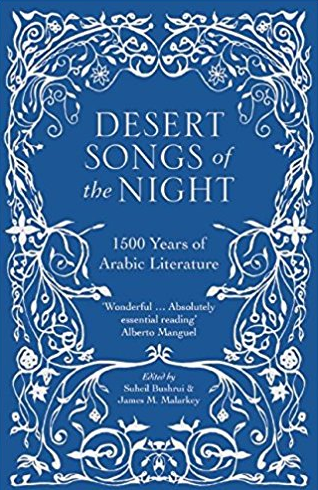Book by SUHEIL BUSHRUI and JAMES MALARKEY
Reviewed by

Suheil Bushrui and James Malarkey’s anthology, Desert Songs of the Night: An Anthology of 1500 years of Arabic Literature, is not aptly named. The romantic title conjures up an image of a bard, reciting poetry and telling stories in the Arabian desert by a fire: the very best poetry and tales from the Arabic literary tradition. In fact, the anthology is a collection of a wide range of texts, reflecting the rich cultural history and thought of Arabic heritage: chivalric verse, political, philosophical, and legal treatises, religious texts, moralistic essays, folktales, travel writing, excerpts from plays and memoirs and modern narrative poetry.
The collection is tempered by the academic backgrounds and interests of the two editors. Suheil Bushrui, who died last year at 84, was a distinguished critic and translator, an authority on Yeats and Kahlil Gibran and the founder and former director of the George and Lisa Zakhem Kahlil Gibran Center for Values and Peace at the University of Maryland. James Malarkey was Professor Emeritus at Antioch University, the former Chair of Humanities and General Education with past stints at universities in Algeria and Beirut. He is an anthropologist, specializing in Algerian politics.










